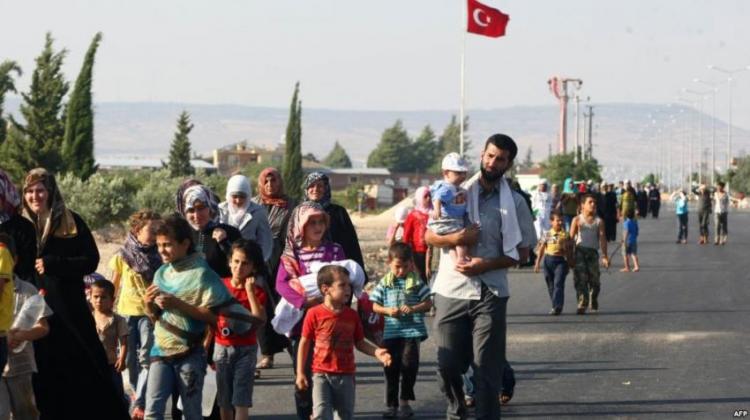Istanbul – North-Press Agency
Syria's Palestinian refugees who are residing in Turkey suffer from several difficulties in terms of neglect or obtaining official documents.
Abu Khaled Amayri, a Syrian Palestinian refugee, told North Press that, "Palestinian refugees in Turkey face many difficulties after the majority of them entered Turkey via smugglers, as their sole concern was fleeing the scourges of war after what happened to the Palestinian camps in particular."
He added that legally, more than 50% of them are in need of documents, most importantly the Temporary Protection Card (an identity card given to refugees by the Turkish government), and some of them do not even have any official card such as a personal ID or passport because of "war conditions. It is possible that they have left their houses after being bombed or subjected to an internal displacement during the ISIS offensive on Yarmouk Camp in southern Damascus." Yarmouk Camp, 8km south of the Syrian capital, was established in 1957 and populated by Palestinians until the beginning of the Syrian war.
Complications and obstacles
Amayri complained of the complications imposed by the Palestinian embassy in Istanbul, Turkey, pointing out when a number of families visited the Palestinian embassy requesting to obtain legal documents, they faced several obstacles.
Most notably, the embassy staff asked these families for identification papers from Syria. No one could obtain them because of the fear of those living in Syria regarding communication with the displaced over of fear of arbitrary arrest. Often the civil registry staff in Syria would impose steep fees for these required documents, according to Amayri.
The strict measures imposed by the Turkish authorities were not limited to deporting Syrian citizens from the country for being undocumented or criminal, but rather they extended to Syria's Palestinian refugees, whom Turkey claims to defend, according to observers.
Amayri added that "the other obstacle for Syria's Palestinian refugees is the high fees for these documents in Turkey, and number of them were subjected to deportation because they did not possess legal papers, especially in Istanbul."
Amayri talked about the very difficult living conditions and the continuation of the neglect of Mahmoud Abbas’s administration or the Palestinian embassy in Turkey in terms of financial support – even obtaining a food basket has become a significant achievement for Palestinian refugees, in addition to families’ low income and lack of job opportunities, despite a large number of the refugees holding university degrees.”
In light of the coronavirus crisis and Turkish claims of taking care of the elderly for their safety, elderly Syrian-Palestinian refugees made several appeals to the Turkish government to provide them with their needs, but they have fallen on deaf ears, as neither Turkish authorities nor the Palestinian embassy responded their appeals, according to Amayri.
Amayri concluded by saying that "Palestinian families in Turkey are waiting for the unknown."
According to observers, the most surprising thing is that Turkish state media frequently discusses "Turkey's continual sending of relief and medical assistance to the Palestinians in Gaza Strip, occupied Jerusalem and the West Bank to alleviate the effects of coronavirus," while Palestinians in its territory suffer greatly.
Suspending deportation
Jihad al-Felastini, from the Palestine camp south of Damascus, said that "a number of Syrian-Palestinian refugees managed to obtain what is called a suspension of deportation document when they were arrested by Turkish security forces after entering illegally. They were given this document because they are Palestinians, but unfortunately, they do not allow them to receive treatment in Turkish hospitals and health centers, and they cannot enroll their children in schools."
Al-Felastini said that "the Palestinian embassy in Turkey should embrace the pain of the people and their problems, especially with regard to the legal situation, and submit collective lists for the Turkish government to settle the situation of the violators legally."
Refugee Abu Hussein Ali said, "We did not come to Turkey of our own will, but we were forcibly displaced from Syria. We as Syrian-Palestinians who lost everything are searching for a decent life, but unfortunately we faced many problems in Turkey, most notably the legal documents. I am trying to get an accommodation due to my poor health, as I have 12 injuries in my body, but no one has responded to me so far."
The suffering of the Syrian-Palestinians is not limited to Turkey. Syrian-Palestinians in a number of sprawling camps on the Syrian border who have been displaced from the Yarmouk Camp and other areas suffer from poor humanitarian conditions inside camps that lack even the most basic necessities of life.

